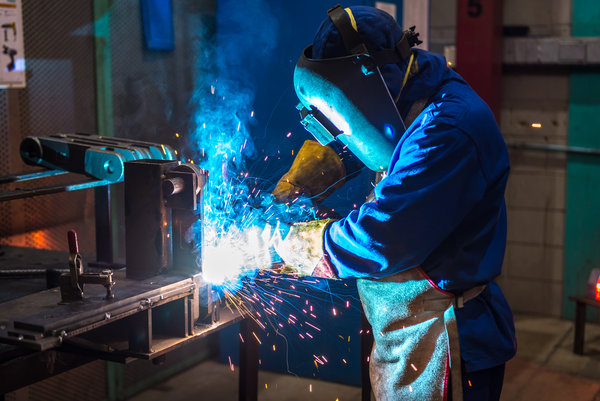Acting as a regional hub for value-added solutions and aftersales service across Sub-Saharan Africa, Bühler Johannesburg was established in 1972 and celebrated its 50th anniversary in 2022, while the Swiss family owned Bühler Group is itself 163 years old. The office and manufacturing facility in Honeydew, Gauteng, was set up in 2004 to consolidate its presence in the country, explains Francois Knoetze, Head of Manufacturing and Logistics.
Bühler Southern Africa has over 220 employees and offers sales and service, project execution, and manufacturing and logistics. In addition, it has service stations in Johannesburg, Cape Town, Lusaka, and Maputo, offering its clients spare and ware parts, roll refluting and die refurbishment.
Manufacturing services at the Johannesburg facility range from small steel construction to heavy processing equipment. Its main focus is chain conveyors designed for grain collection points, grain terminals, and processing plants. These are compact and have a high conveying capacity over long distances thanks to their premium quality drop-forged chain. They also provide gentle handling of granular and floury bulk goods. Bühler chain conveyors set new standards for service life, sanitation, and versatility, with throughputs of up to 1 200 t/h.
The manufacturing setup in Johannesburg is an independent entity operating as a standalone Bühler business in the market, supplying assemblies for machines and production plants globally. Value-added services include drafting, prototyping, general steel fabrication (with a specialisation in mild steel, stainless steel, and aluminium), bending, rolling, welding, boilermaking, sheet metal work, laser cutting, powder coating and painting, pickling and passivating, and assembly.
A unique aspect of Bühler Johannesburg is that it manufactures and exports mining equipment. “For example, we assist Brazil with expertise and knowledge because it has a lot of woodworking plants, which use similar equipment to the mining industry,” says Knoetze. The company supplies equipment for the power generation sector. Other focal markets are sugar, bottling, smelting, brewing, and agricultural processing spares.
“Our market segmentation and diversification obviously assists us to weather cyclical variances in any specific industries and sectors,” says Knoetze. However, he points out that extended loadshedding is having a major impact on feed customers in particular. Hence the current trend is for longer-lasting equipment and back-up power supply to maintain production in the event of any outages.
The fact that Bühler Johannesburg has a state-of-the-art manufacturing facility, plus a full stockholding of essential spares, underscores its vision of ‘if you can imagine it, we can make it’. Knoetze reveals that customisation is the norm, mainly due to the lack of Greenfield projects in South Africa.
“We often have to take an existing building and ensure our equipment fits into that specific footprint and layout, which is where a lot of the customisation comes in. We also carry out a lot of equipment replacement, which is all part of our value-added service offering to our clients,” says Knoetze.
“From a manufacturing perspective to a group perspective, Bühler Johannesburg is committed to ensuring its clients get the best value possible, from planning to logistics and assisting with energy efficiency and optimisation,” says Knoetze.
Bühler Johannesburg can conduct an audit of a client’s production line or process and then make recommendations either in terms of new equipment or possible refurbishment to the latest technology. This is increasingly important in terms of Industry 4.0, where digitisation and automation are critical for predictive maintenance and maximum throughput.
“Industry 4.0 is no longer a ‘nice to have’ but is becoming essential for remote monitoring, for example, you can be anywhere in the world and check in, on the production quality and rate. The new generation machines even allow for bearing temperature monitoring remotely as an indicator of any potential problems,” says Knoetze.
To ensure a skills pipeline for Bühler Johannesburg itself and the broader industry, the company offers merSETA accredited apprenticeship programmes for boilermakers, fitters and turners, mechatronics, and welding. “We aim to equip the future generation with vocational and practical on-the-job training,” concludes Knoetze.








